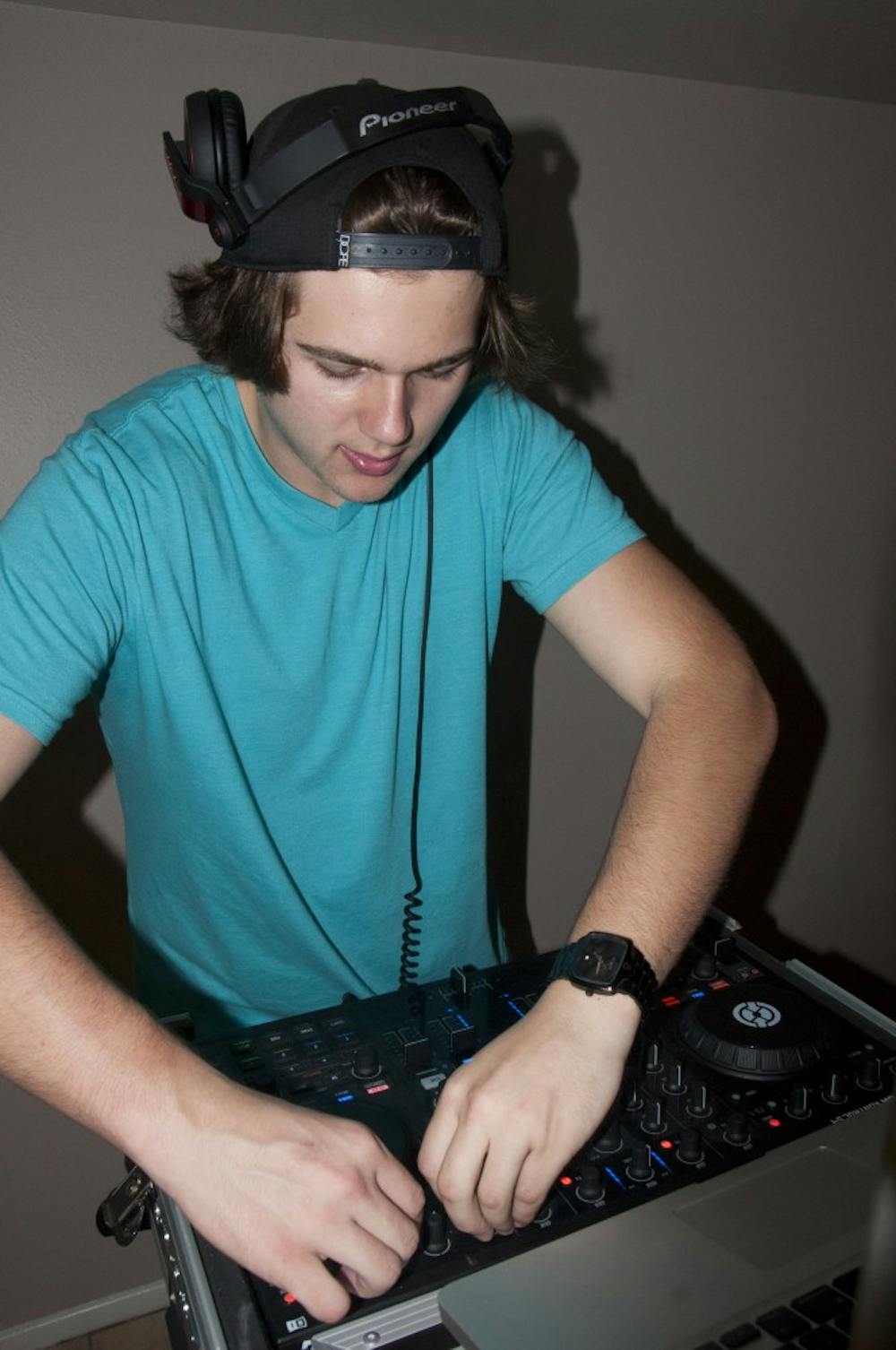The room goes black. Flashes of light begin to reflect throughout the crowd as the beat of the music progressively gets faster. Beat-by-beat builds up until it drops into an explosion of sound and rhythm. This scene has become the backdrop for the ASU electronic disc jockeys (DJs) Doo-Oh.
ASU journalism students Dominick DiFurio and Brandon Smith, Doo-Oh, started DJing a year ago and have since realized being a DJ is not only about their love for the music, but for the unity it brings their listeners.
“I’ve always had this theory about house music,” DiFurio says. “That the beat of the music resembles a heart beat. It kind of speaks to humans and it’s hard not to dance to that."
DiFurio was born in a small city north of Baltimore. When he was 13 years old his family moved to Dallas, which put him in a situation where he was forced to adapt to different cultures.
“Moving halfway across the country really changed my life,” DiFurio says. “It opened me up to different kinds of people. I knew no one, so I started learning how to force myself to meet new people.”
Smith was born and raised in Sacramento, Calif. and came out to Arizona to pursue his journalism education at the Walter Cronkite School of Journalism and Mass Communication.
“I came to ASU for the Cronkite School and that’s where I met Dom,” Smith says. “He was the one who got me into DJing to start out with. We were producing one day and he broke out a pair of turntables and we just started messing around.”
DiFurio and Smith use the program TRAKTOR – the largest DJ software developed by Native Instruments – to develop their music. The prominence of the Internet goes hand-in-hand with the making and success of electronic music.
“We go for a more digital approach because that’s what we grew up with,” Smith says. “And because the electronic scene is derived so much from the Internet, there are always new trends that you can’t ever keep up with.”
But what sets Doo-Oh apart from other DJs on campus is their unique style of combining different genres of music to form their own.
“We can flow in and out of genres almost seamlessly,” Smith says. “Cross mixing genres is a cool concept. People love hearing songs that they know and can recite every word of, but it’s kind of exciting when you surprise them with something different.”
Both DiFurio and Smith tend to gravitate towards heavier sounding electronic dance music (EDM), but they each add their own individual tastes to the set. DiFurio keeps up with new and popular EDM music that comes out online while Smith balances the heavy music out with hip-hop and rap.
“The most golden tunes that you want to drop at a party are maybe a top 40 or a well known song, but it’s a sick remix and then you just add even more to it,” DiFurio says.
Tapping into the DJ scene at ASU wasn’t a challenge for Doo-Oh. With just three weeks of experience DiFurio and Smith signed up for their first gig, a local party at The Vue on Apache Boulevard (now 922 Place). The night was a success and Doo-Oh was asked to DJ another party. Smith realized this hobby might have just turned into a business opportunity.
“It’s a really flooded market here at ASU with other DJs, everyone is trying to start,” Smith says. “It’s a community of people who understand what it means to go through and find good music.”
Jesus Almada, a health major at ASU, met Doo-Oh in downtown Phoenix last year. Once he heard the two DJs, he booked them for a party at his house that had over 300 attendees. After that night, Almada says he was so impressed with their performance that he made it a priority to refer Doo-Oh to others in need of DJs.
“They just really knew what to play to keep everything going and loud enough to hear from anywhere,” Almada said.
Doo-Oh focuses on bringing the music to parties that is going to get people to move. Once DiFurio and Smith learned how to understand the way people react to certain music, they began to fuse songs together to create mixes that would bring out emotion in people.
“We make an effort to connect with the people we’re playing for,” Smith says. “We also take requests for songs because it’s not only about what we like it’s also about what people want to hear.”
Up until this semester Doo-Oh has relied on word of mouth to get their name out. Now they are branding themselves via online media, flyers on campus and promotional videos. DiFurio and Smith plan to continue DJing on the ASU campus in hopes of networking to bigger things either in college or after. Doo-Oh plans to hold a festivity for the first 100 people that like its Facebook page.
“We want to work our way through the party scene and into the club scene,” DiFurio says. “It’s not unreasonable to have two jobs these days for someone getting out of college, so I think it could be awesome way for side cash and a way to express ourselves.”
Reach the writer at k.etzel@yahoo.com or @KITTTY_katt







